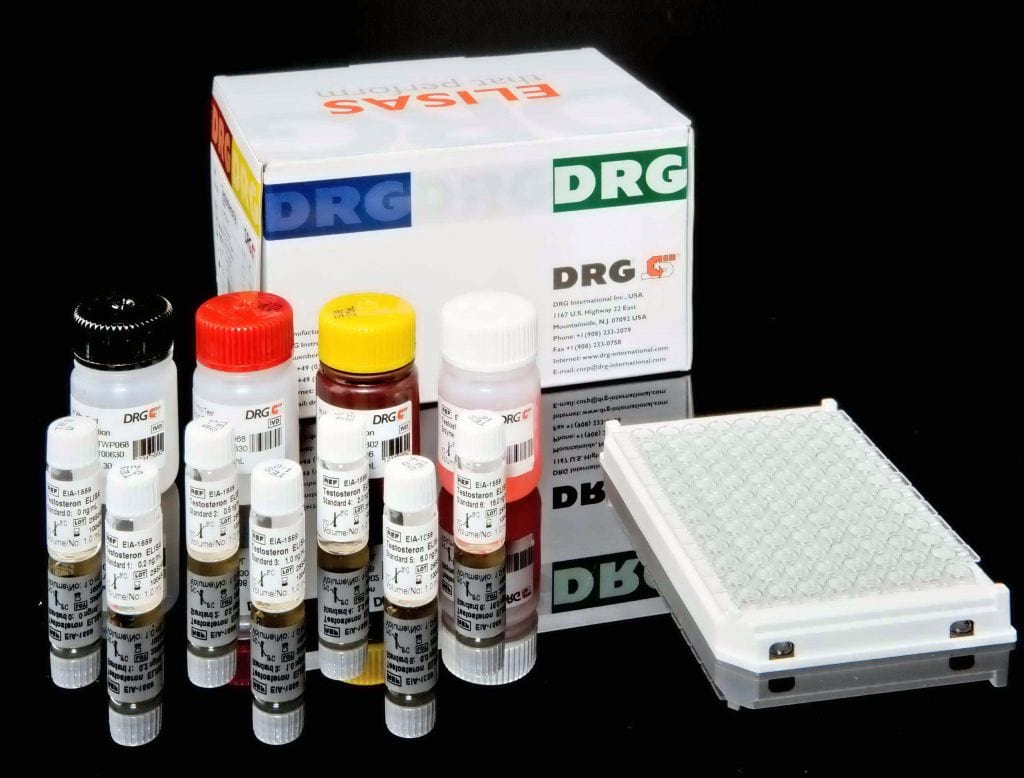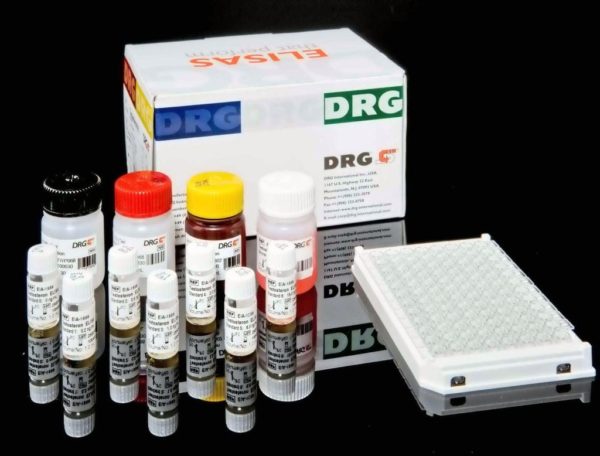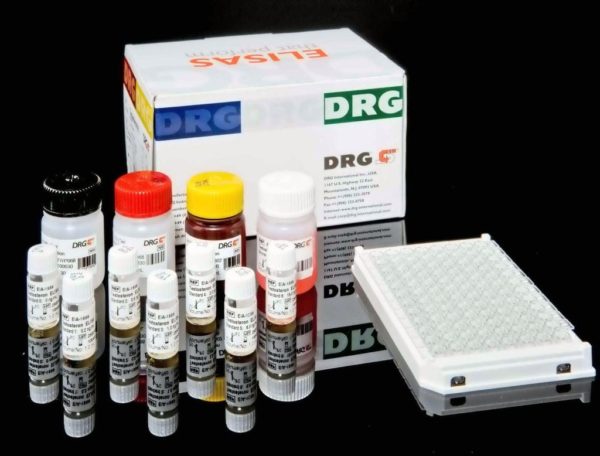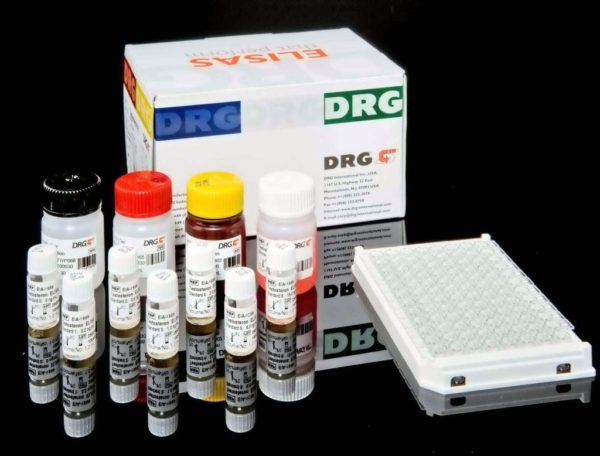Description
The Anti-Ovarian Ab ELISA is a reliable and quantitative test for the determination of antibodies directed against human ovarial tissues. This test is intended for the use with serum.
Antibodies directed against ovary antigens in serum can cause infertility in women. The application of the Anti-Ovarian Ab ELISA is recommended for monitoring disorders of fertility and premature ovarian failure.
The Anti-Ovarian Ab ELISA is a part in clinical practice for the confirmation or the exclusion of antibodies against ovarial tissues as cause of fertility problems.
The Anti-Ovarian Ab ELISA (Enzyme Linked ImmunoSorbent Assay) is a solid-phase sandwich enzyme immunoassay for the quantitative determination of anti-ovary antibodies in human serum. A mix of ovary proteins is bound to the surface of the wells of the ELISA plate. The samples and standards are pipetted into the wells and then incubated. During this incubation anti-ovary antibodies in the sample bind to the ovary proteins and are thus immobilized on the plate. After several washing steps the enzyme conjugate, consisting of polyclonal antibodies directed against epitopes on the Fc part of human immunoglobulins and covalently coupled to horseradish peroxidase, is added. After removal of the unbound conjugate by washing the horseradish peroxidase oxidizes the then added substrate TMB (3,3Õ,5,5Õ-tetramethylbenzidine), yielding a color reaction which is stopped by adding 0.25 M sulfuric acid (H2SO4). The extinction is measured at a wavelength of 450 nm with a microplate reader. The use of a reference measurement with a wavelength ³550nm is recommended.




